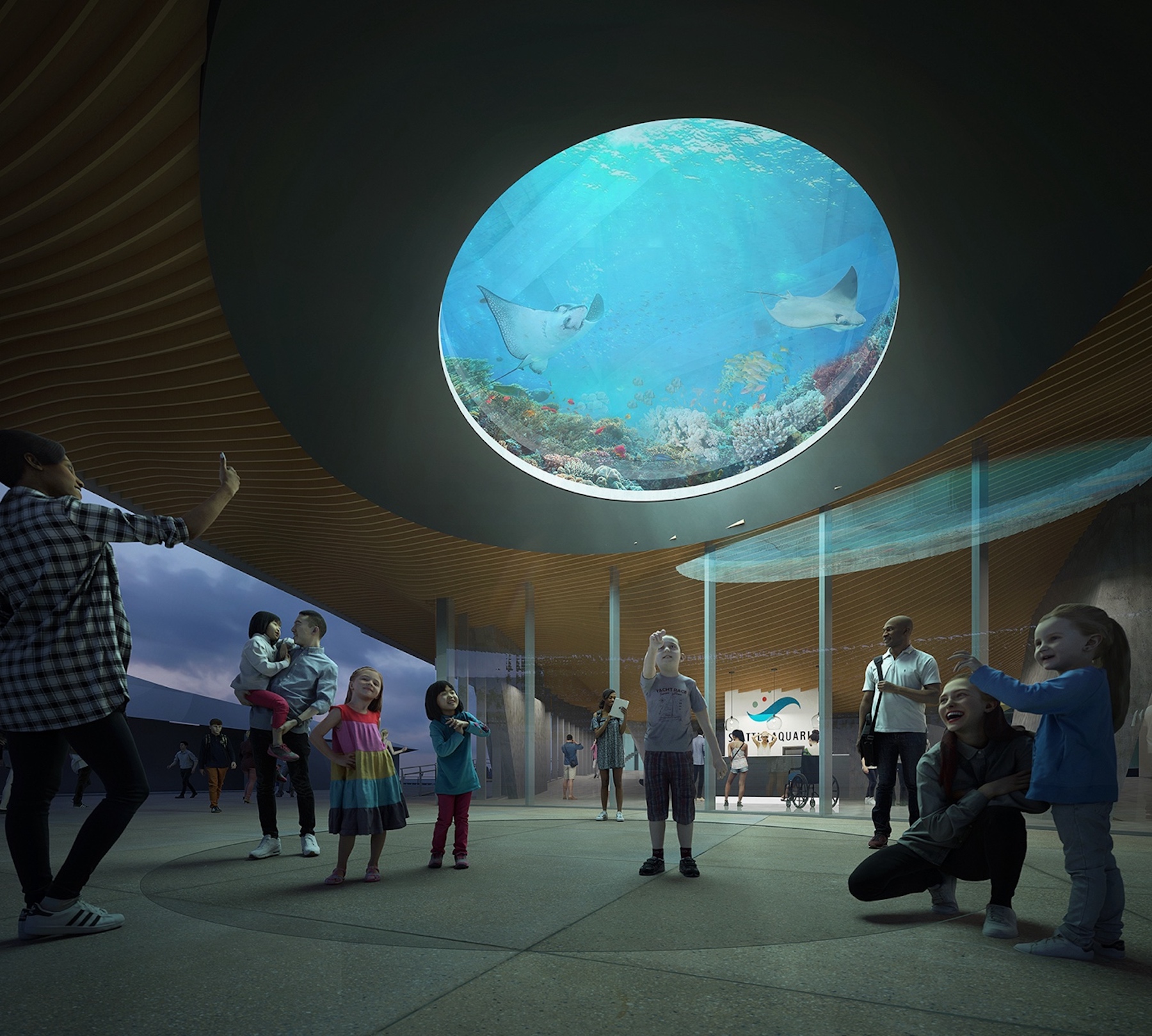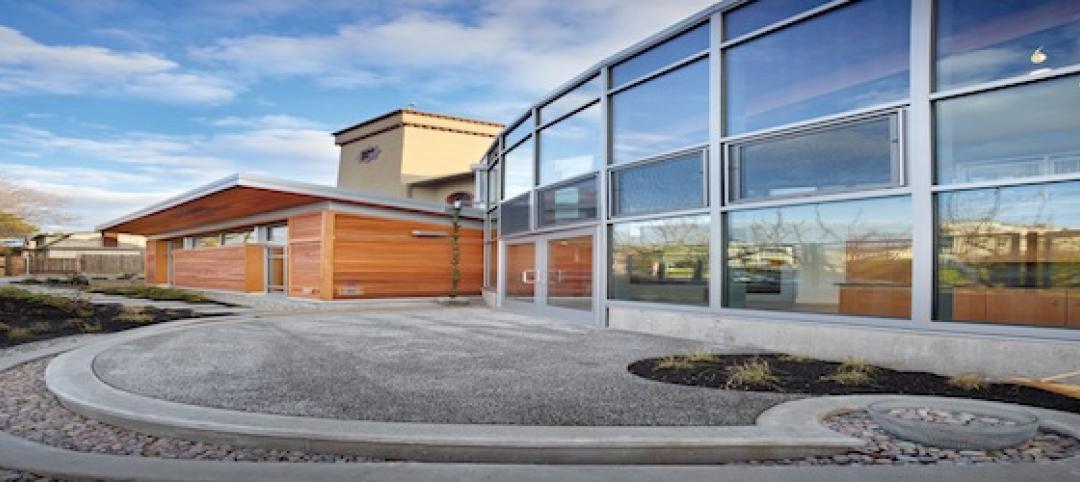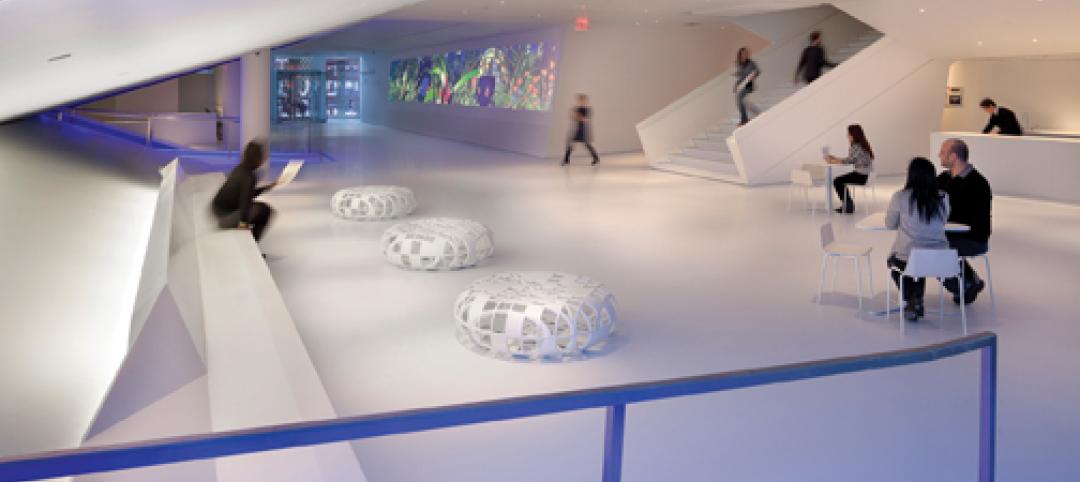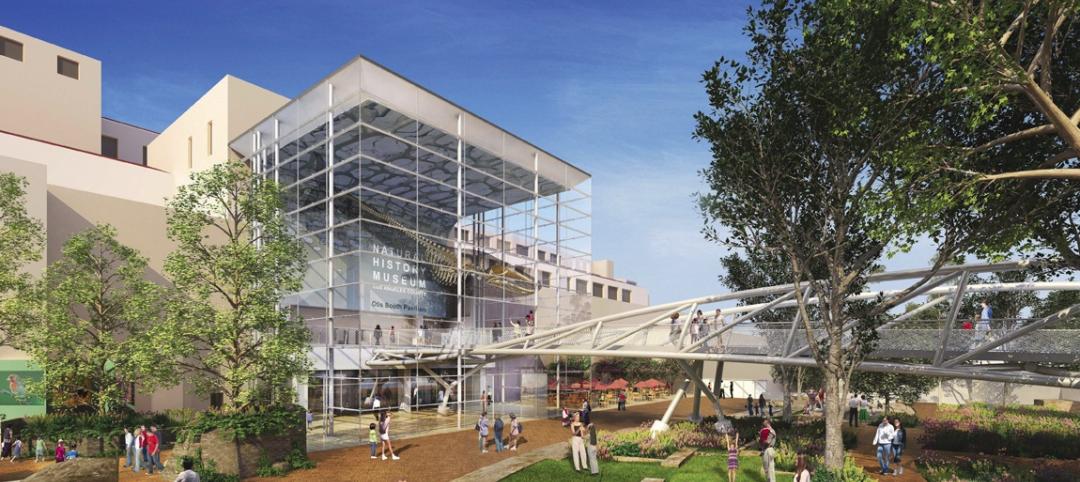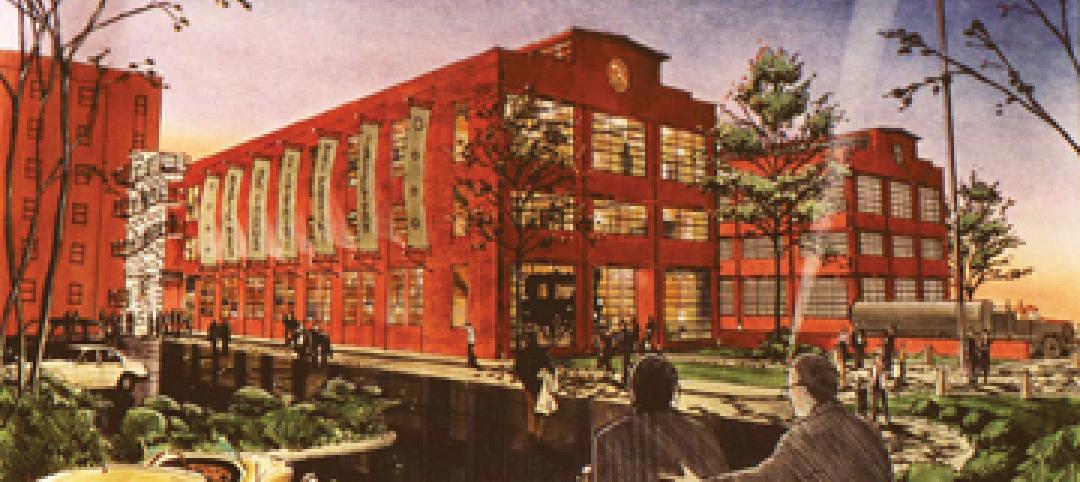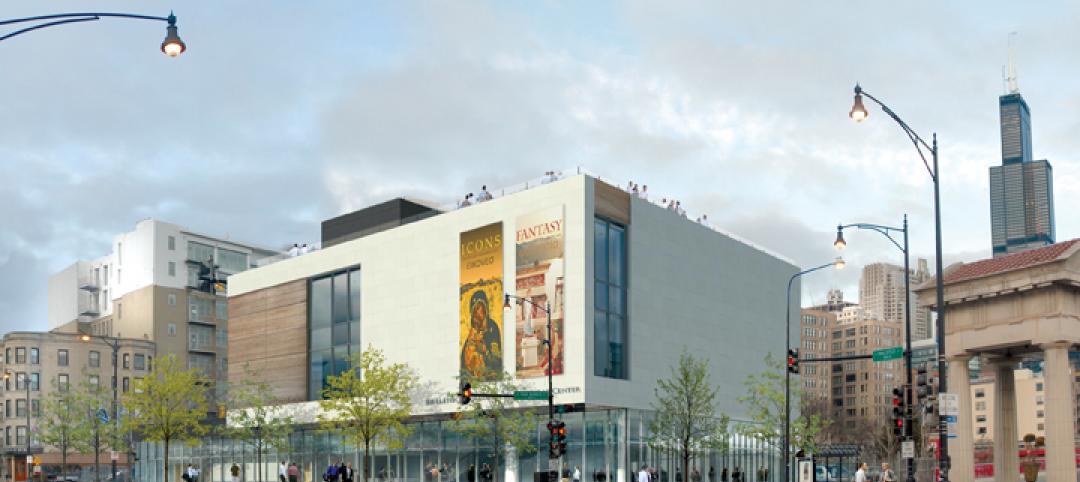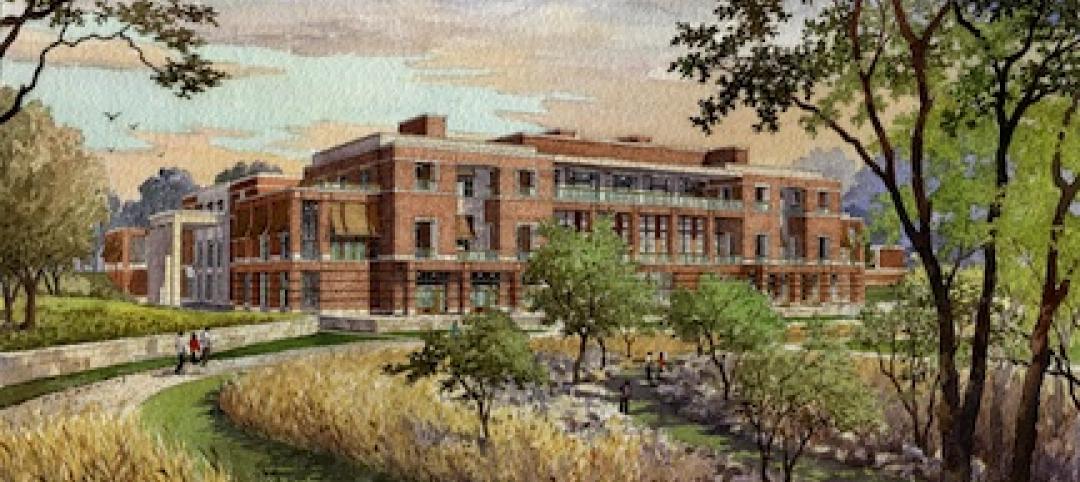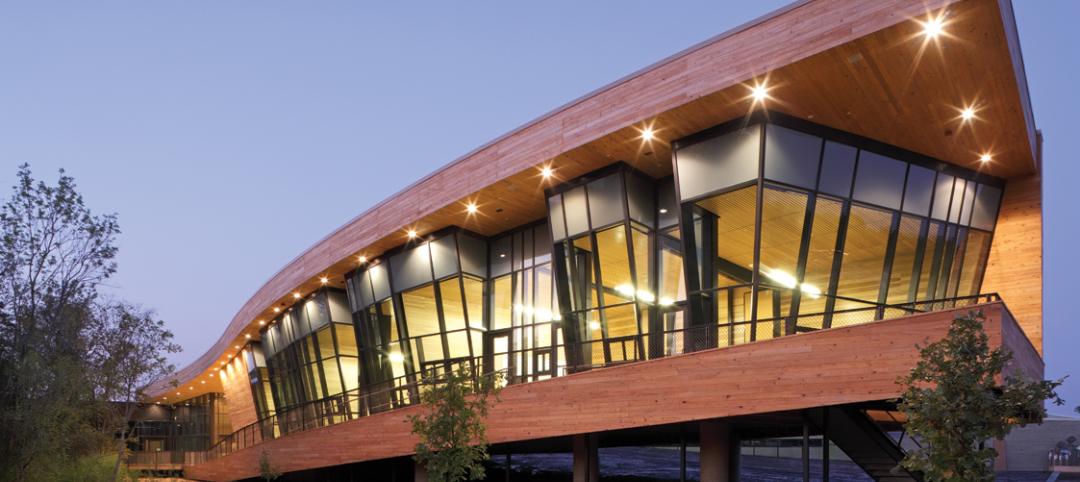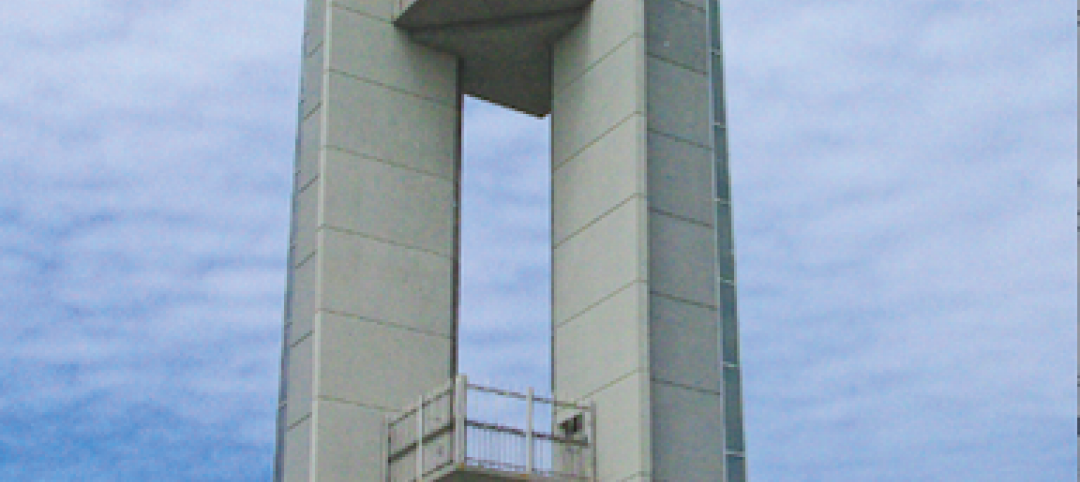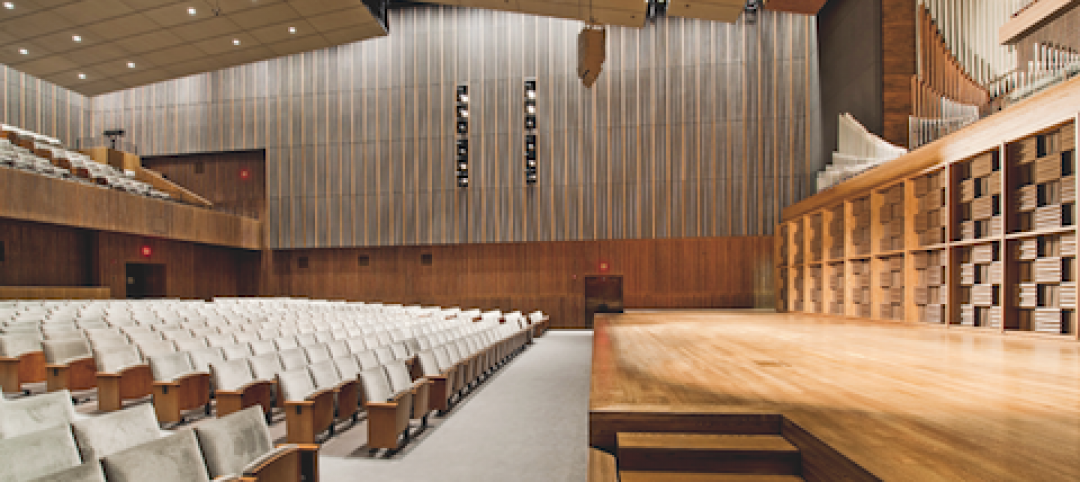Seattle Aquarium’s new Ocean Pavilion, currently under construction, features several exhibits that examine the human connection with the Earth’s oceans. The 49,000 sf Ocean Pavilion has 19 living exhibits organized around The Reef, a new 362,000 gallon, two-story living habitat that is visible from five unique perspectives.
The Reef depicts a biodiverse Coral Triangle reef community, featuring an expansive, nearly 30-foot-wide domed view on the ground floor and additional viewing windows on an upper gallery. Cantilevered over the Pavilion’s entrance, it also features the “oculus”—a 16-foot wide portal that allows passersby to stand beneath and view the exhibit without paying admission.
The aquarium’s new pavilion is “the spectacular northern focal point of the reimagined Seattle waterfront,” according to Thinc, the firm that designed the exhibitions. LMN Architects is the design architect on the project, and is collaborating with Thinc on the exhibitions. “Thinc views every possible part of the Aquarium as useful context for building relationships with the public. Even the parts normally hidden from view consciously reveal the tank habitat vessels and back of house, all designed both for functionality and beauty.”
“To imagine an aquarium built around ethical human relationships with the ocean means throwing out the playbook on how you design aquariums,” said Tom Hennes, founder and principal of Thinc. “We can touch people deeply and enrich their relationship with the natural world, and we can also be a vital instrument of social change that catalyzes public engagement toward a thriving future.”
The Pavilion exhibition is organized into eight areas: 1) the entry/exit; 2) One Ocean Hall; 3) At Home in the Ocean; 4) The Archipelago (lower level view); 5) Window on The Reef (a dramatic, 30-foot wide domed window); 6) The Archipelago (upper level); 7) The Reef (upper level with three distinct views); and 8) Behind the Scenes (includes Jelly Nursery and Programming Area).
Dramatic living exhibits, engaging storytelling, and immersive multimedia installations will envelop visitors in the webs that connect ocean life to the complex arenas of human activity. The design was focused on realizing the Aquarium’s vision to make ocean conservation a global imperative, a community value, and a deeply personal priority for all. The Ocean Pavilion provides new opportunities for the Aquarium’s community to learn about the connections between Seattle’s local waters and the world’s oceans.
A collaboration with Coast Salish Tribal and Urban Native community members, as well as Indo-Pacific conservation partners, informed Thinc’s treatment of narratives and the design of the Ocean Pavilion. The design process included focused workshops and listening sessions with Coast Salish elders and tribal youth, and Urban Native community members, who contributed to the outcome.
The Ocean Pavilion is scheduled to open in 2024.
On the Building Team:
Owner and/or developer: Seattle Aquarium Society
Exhibition Designer: Thinc Design
Design architect & Architect of Record: LMN Architects
MEP engineer: PAE
General contractor/construction manager: Turner Construction Company
Horticulture Consultant: Zoo Horticulture Consulting and Design
Lighting Consultant: Palazzo Lighting
Technology Consultant: Teecom
Focus Tank LSS: Tenji
Development Manager: Shiels Obletz Johnsen (SOJ)
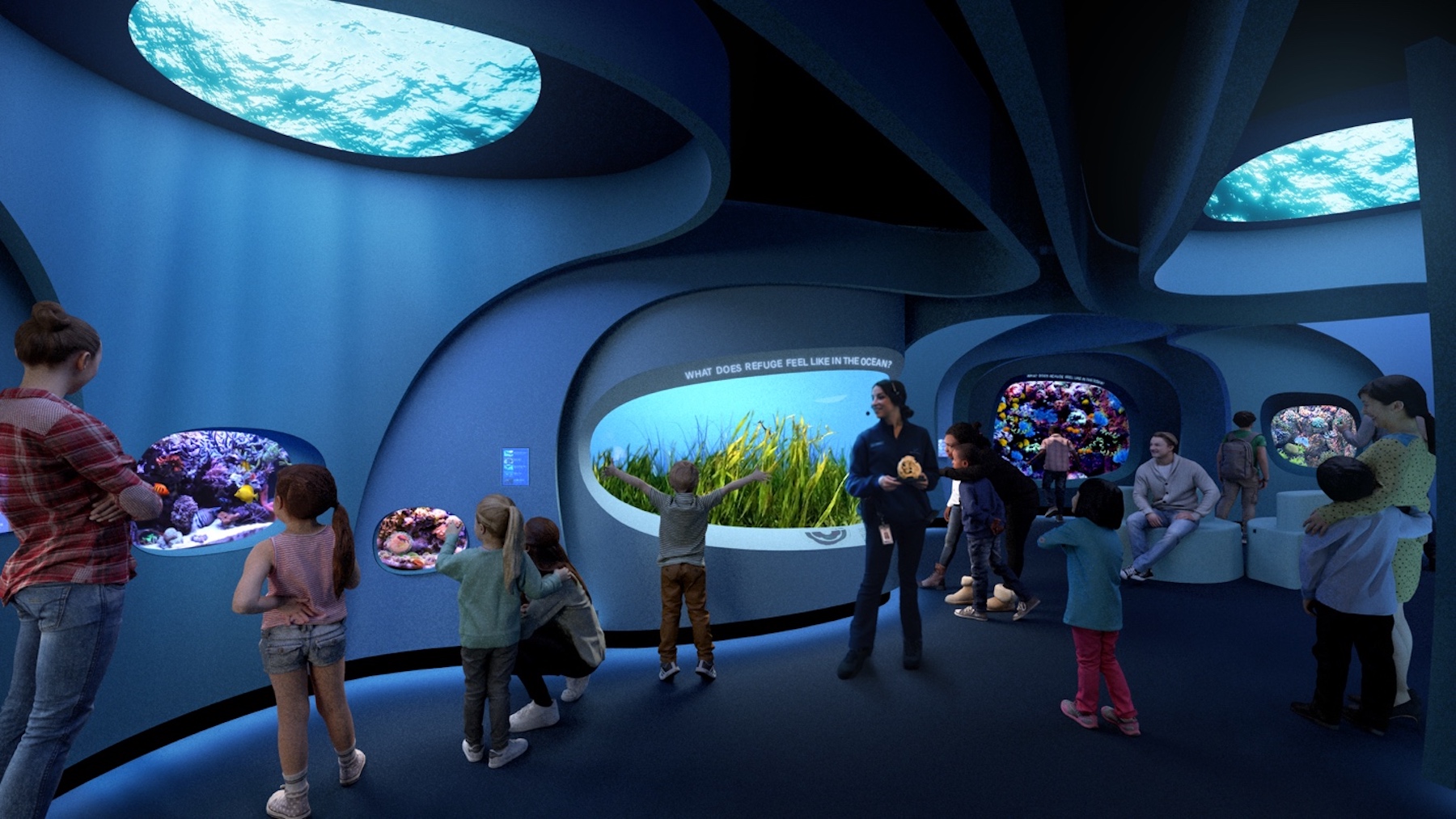
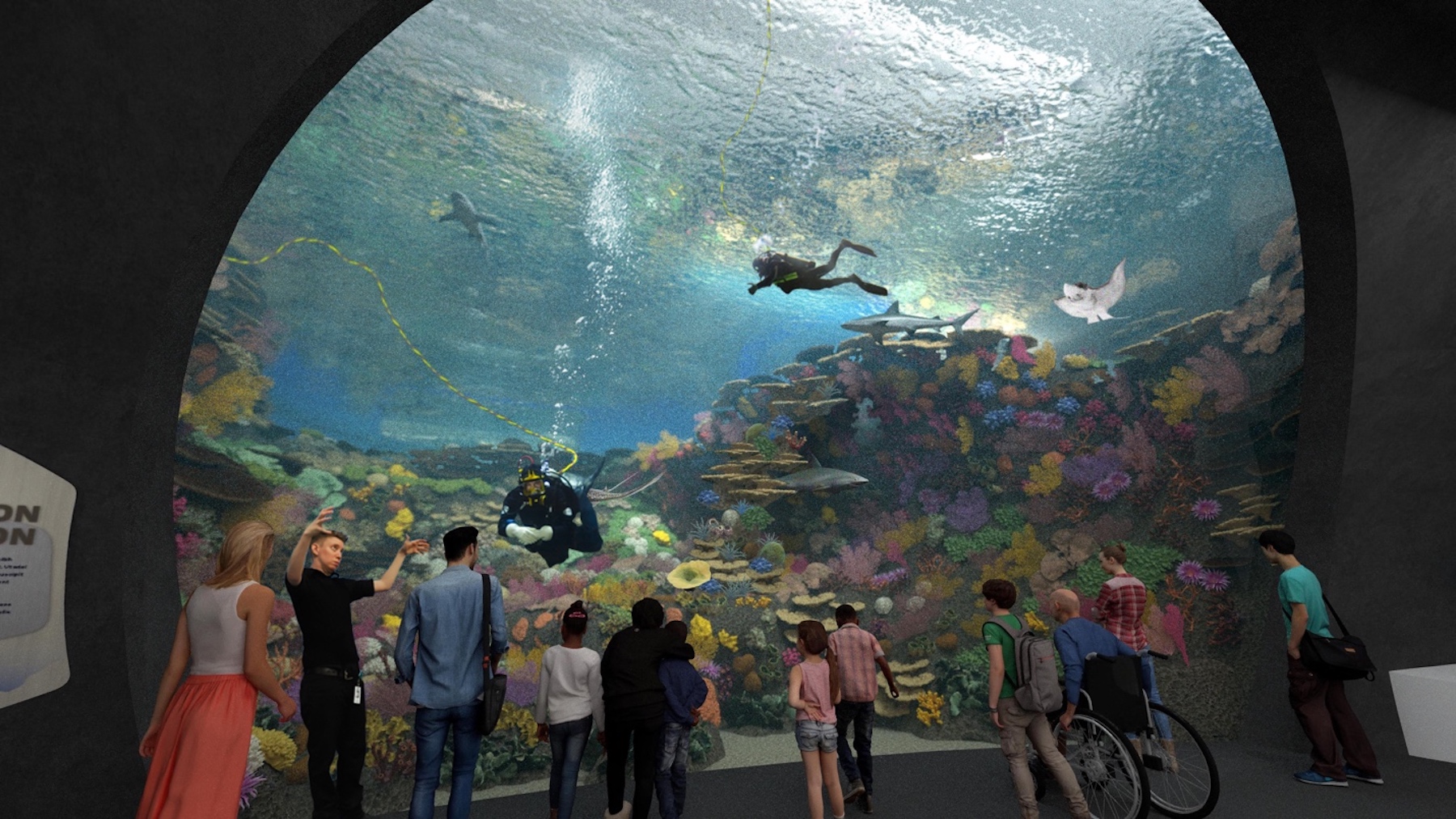
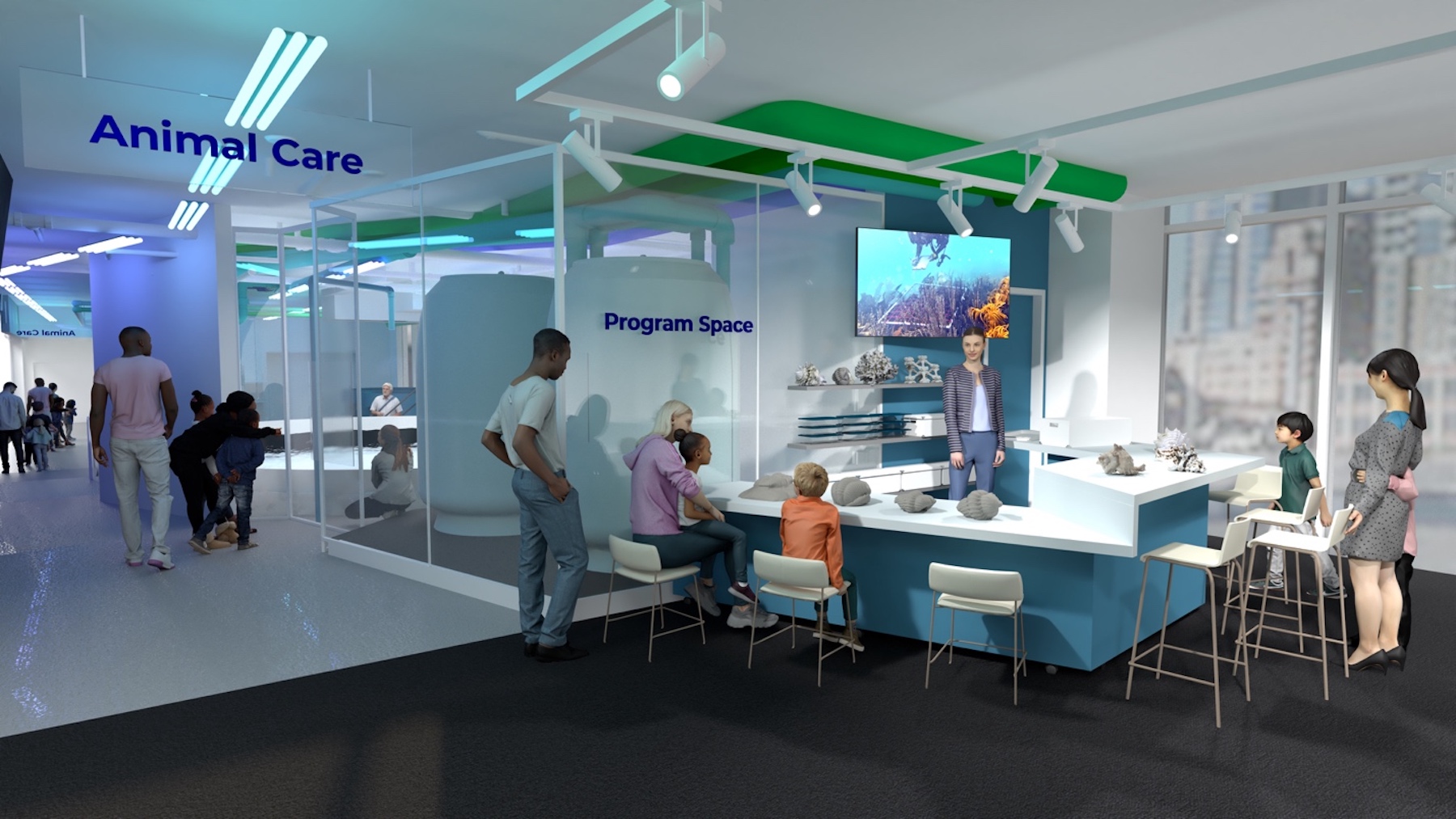
Related Stories
| Sep 12, 2011
Living Buildings: Are AEC Firms up to the Challenge?
Modular Architecture > You’ve done a LEED Gold or two, maybe even a LEED Platinum. But are you and your firm ready to take on the Living Building Challenge? Think twice before you say yes.
| Apr 13, 2011
Expanded Museum of the Moving Image provides a treat for the eyes
The expansion and renovation of the Museum of the Moving Image in the Astoria section of Queens, N.Y., involved a complete redesign of its first floor and the construction of a three-story 47,000-sf addition.
| Apr 12, 2011
Entrance pavilion adds subtle style to Natural History Museum of Los Angeles
A $13 million gift from the Otis Booth Foundation is funding a new entrance pavilion at the Natural History Museum of Los Angeles County. CO Architects, Los Angeles, is designing the frameless structure with an energy-efficient curtain wall, vertical suspension rods, and horizontal knife plates to make it as transparent as possible.
| Jan 21, 2011
Sustainable history center exhibits Fort Ticonderoga’s storied past
Fort Ticonderoga, in Ticonderoga, N.Y., along Lake Champlain, dates to 1755 and was the site of battles in the French and Indian War and the American Revolution. The new $20.8 million, 15,000-sf Deborah Clarke Mars Education Center pays homage to the French magasin du Roi (the King’s warehouse) at the fort.
| Jan 19, 2011
Industrial history museum gets new home in steel plant
The National Museum of Industrial History recently renovated the exterior of a 1913 steel plant in Bethlehem, Pa., to house its new 40,000-sf exhibition space. The museum chose VOA Associates, which is headquartered in Chicago, to complete the design for the exhibit’s interior. The exhibit, which has views of five historic blast furnaces, will feature artifacts from the Smithsonian Institution to illustrate early industrial America.
| Jan 19, 2011
Museum design integrates Greek history and architecture
Construction is under way in Chicago on the National Hellenic Museum, the nation’s first museum devoted to Greek history and culture. RTKL designed the 40,000-sf limestone and glass building to include such historic references as the covered walkway of classical architecture and the natural wood accents of Byzantine monasteries. The museum will include a research library and oral history center, plus a 3,600-sf rooftop terrace featuring three gardens. The project seeks LEED Silver.
| Nov 23, 2010
The George W. Bush Presidential Center, which will house the former president’s library
The George W. Bush Presidential Center, which will house the former president’s library and museum, plus the Bush Institute, is aiming for LEED Platinum. The 226,565-sf center, located at Southern Methodist University, in Dallas, was designed by architect Robert A.M. Stern and landscape architect Michael Van Valkenburgh.
| Nov 2, 2010
Cypress Siding Helps Nature Center Look its Part
The Trinity River Audubon Center, which sits within a 6,000-acre forest just outside Dallas, utilizes sustainable materials that help the $12.5 million nature center fit its wooded setting and put it on a path to earning LEED Gold.
| Oct 13, 2010
Tower commemorates Lewis & Clark’s historic expedition
The $4.8 million Lewis and Clark Confluence Tower in Hartford, Ill., commemorates explorers Meriwether Lewis and William Clark at the point where their trek to the Pacific Ocean began—the confluence of the Mississippi and Missouri Rivers.
| Oct 12, 2010
Gartner Auditorium, Cleveland Museum of Art
27th Annual Reconstruction Awards—Silver Award. Gartner Auditorium was originally designed by Marcel Breuer and completed, in 1971, as part of his Education Wing at the Cleveland Museum of Art. Despite that lofty provenance, the Gartner was never a perfect music venue.


